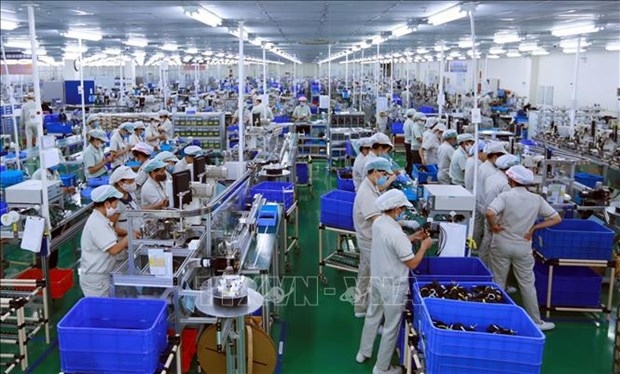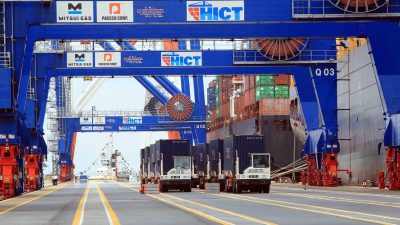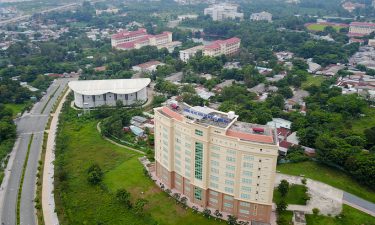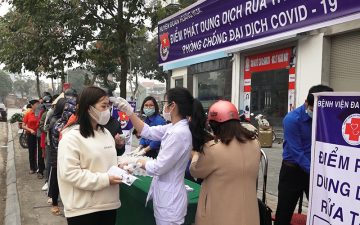
|
The rapid suppression of the new COVID-19 outbreak in late January 2021 has helped maintain Vietnam’s positive outlook for economic recovery this year, the World Bank (WB) has said. |
|
In its latest Vietnam Macro Monitoring report, the WB said, looking ahead, special attention should be paid to how the COVID-19 vaccinations will be rolled out domestically and globally as they will impact the pace of Vietnam’s economic growth. Further fiscal and monetary policy interventions may be needed to support recovery of private demand. According the WB, the Vietnamese government quickly introduced strict but targeted measures to suppress this new outbreak of COVID-19 in Hai Duong, the epicenter, including during the Tet holidays. As a result, the number of new cases started decreasing, and restrictions were partly eased in the second half of the month. In the meantime, Vietnam has approved three types of vaccines. The government also approved a resolution to purchase a total of about 150 million doses of COVID-19 vaccines, and prioritized recipient groups. The WB noted that industrial production slowed as factories closed in observance of the Tet holidays. Industrial production index dropped by 7.2% year-on-year in February 2021. This decline is mainly reflecting the cross-year difference in the timing of the Tet holidays, when factories shut down for a week. The two-month moving average still registered an increase of 8.8% year-on-year in the first two months of 2021. Metals production, and electronics, computers and optical products continued to grow by 8.6% and 3.2%, respectively in February, thanks to strong external demand. Despite the new COVID-19 outbreak, retail sales in February grew by 0.3% month-on-month and by 8.3% year-on-year due to higher consumption demand associated with the Tet holidays. While lower than pre-COVID-19 performance, this growth suggests that the government’s targeted response to the outbreak mitigated the spillover of the negative impacts of anti-COVID stringency measures on economic activities to provinces outside the epicenter. Vietnam’s merchandise exports fell by 4.2% year-on-year while imports grew by 11.8% year-on-year in February 2021, resulting in the first month of trade deficit since April 2020. Preliminary data show that exports to the US and China rose while those to EU, ASEAN, the Republic of Korea, and Japan decreased. The increase in imports was driven by a doubling of imports from China in February 2021 compared to the same period last year, mirroring January 2021 import patterns. In January 2021, imports of phones, computers, electronics and their parts, and machinery accounted for half of total imports from China and grew by over 75% year-on-year. This reflects both Vietnam’s heavy reliance on imported inputs in manufacturing. In the first two month of 2021, the Vietnamese government collected VND286.7 trillion of revenues, which is 0.6% higher than the same period last year. This good performance – the first time that government total revenue is increasing since the beginning of the COVID-19 crisis a year ago reflects the ongoing recovery and the elimination of most tax incentives that were adopted in April 2020. The Ministry of Finance proposal for a second round of tax and land rental deferrals is being discussed by the cabinet. The total size of the package was estimated at VND115 trillion (US$5 billion). If approved and implemented well, it is expected to help businesses and households maintain their economic activities, particularly in tourism, which remains depressed. Source: Nhan Dan Online |


